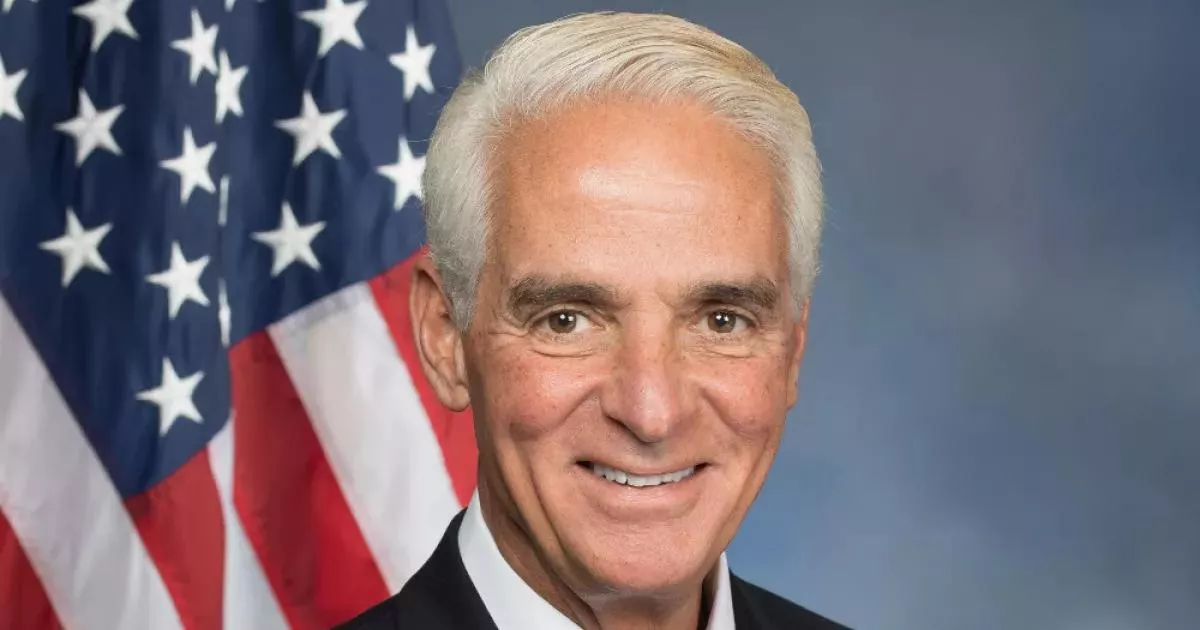Charlie Crist is an American attorney and politician who served as the 44th governor of Florida from 2007 to 2011. He also represented Florida's 13th congressional district in the U.S. House of Representatives from 2017 to 2022. Originally a Republican, Crist became an independent in 2010 and joined the Democratic Party in 2012.
1955: Democratic Representative Preceding Crist
In 1955, the last Democratic representative preceding Crist's victory in 2016 represented Florida's 13th Congressional District.
1955: Florida's 13th District Turns Republican
Since 1955, Florida's 13th congressional district had been consistently held by Republicans, marking it as a historically Republican stronghold.
July 24, 1956: Birth of Charlie Crist
On July 24, 1956, Charlie Crist was born in Altoona, Pennsylvania.
1964: First Florida Governor to Not Seek Reelection Since 1964
Crist's decision not to run for reelection as governor in 2010 made him the first Florida governor to forgo a reelection bid since 1964, highlighting a departure from the norm.
1974: High School Graduation
Charlie Crist graduated from St. Petersburg High School in 1974.
1977: Florida Enacts Ban on Same-Sex Adoption
Florida enacted a ban on same-sex couples adopting children in 1977.
July 1979: First Marriage
Charlie Crist married Amanda Morrow in July 1979. The marriage was short-lived, ending in divorce within a year.
1981: Law School Graduation and Early Career
After graduating from law school in 1981, Charlie Crist worked as general counsel for Minor League Baseball.
1986: First Candidacy for Public Office
In 1986, Charlie Crist ran for a state Senate seat in Pinellas Country for the first time but did not succeed.
1988: Supporting Connie Mack III's Campaign
Charlie Crist worked as an aide for Connie Mack III's successful U.S. Senate campaign in 1988.
1992: Election to the Florida Senate
Charlie Crist was elected to the Florida Senate in 1992, defeating incumbent Helen Gordon Davis.
1992: Shift in Presidential Voting Patterns
Since 1992, Florida's 13th congressional district saw a shift in its voting patterns, increasingly supporting Democratic presidential candidates.
1993: Charlie Crist Elected to the Florida Senate
In 1993, Charlie Crist began his service in the Florida Senate, representing the 20th District.
1994: Reelection to the Florida Senate
Charlie Crist was reelected for a four-year term in the Florida Senate in 1994.
1994: Senate Ethics and Elections Committee Investigation
In 1994, the Senate Ethics and Elections Committee, chaired by Charlie Crist, investigated allegations against Governor Lawton Chiles.
1995: Crist Opposes Mandatory Waiting Period for Abortion
In 1995, while serving in the Florida Senate, Crist joined forces with two Democrats on the Senate Health Care Committee to oppose a proposed mandatory 24-hour waiting period for women seeking abortions. The vote resulted in a 3-3 tie, effectively defeating the bill.
1998: Crist's First Senate Run
Charlie Crist first ran for the US Senate in 1998, a seat he would later contest again in 2010.
1998: Unsuccessful U.S. Senate Run
Charlie Crist ran for the U.S. Senate against incumbent Bob Graham in 1998, but ultimately lost the election.
1998: Crist Expresses Stance on Abortion Rights
During his 1998 U.S. Senate campaign, Crist articulated his stance on abortion in a Tampa Bay Times questionnaire, acknowledging a woman's right to choose while emphasizing the importance of careful consideration and consultation with family, physician, and clergy, rather than government involvement.
1998: U.S. Senate Campaign and Appointment by Jeb Bush
In 1998, Charlie Crist ran for the U.S. Senate but lost. However, he gained recognition and was appointed to a position in the Florida Department of Business and Professional Regulation by Governor Jeb Bush.
1999: Serving as Deputy Secretary
Charlie Crist served as the deputy secretary of the Florida Department of Business and Professional Regulation in 1999.
1999: Charlie Crist Concludes Service in the Florida Senate
Charlie Crist's time in the Florida Senate ended in 1999, when he decided to run for the U.S. Senate.
2000: Running for Florida Education Commissioner
Charlie Crist decided to run for Florida education commissioner in 2000.
2000: Special Election Victory for Florida Education Commissioner
Charlie Crist won the 2000 special election to become the Florida education commissioner.
January 2001: Charlie Crist Takes Office as Education Commissioner
Charlie Crist assumed the role of Florida education commissioner in January 2001.
2001: Charlie Crist Assumes Office as Education Commissioner
Charlie Crist officially began serving as the Florida education commissioner in January 2001.
2002: Transitioning from Education Commissioner to Attorney General
Charlie Crist left his position as Florida education commissioner after being elected as attorney general in 2002.
2002: Election as Florida Attorney General
Charlie Crist won the 2002 election for Florida attorney general.
2002: Support for Attorney General Candidacy
John Walsh, host of "America's Most Wanted," and others supported Charlie Crist's candidacy for Florida attorney general in 2002, citing his work with the Center for Missing and Exploited Children.
2003: Charlie Crist's Tenure as Education Commissioner Ends
Charlie Crist's time as education commissioner ended in 2003 after he was elected as the Florida attorney general.
September 2005: Crist Signs Petition Supporting Same-Sex Marriage Ban
In September 2005, during the Republican primary, Crist signed a petition in support of a state constitutional amendment to ban same-sex marriage. This action aligned with his stated support for "traditional marriage" in his campaign materials at the time.
February 2006: Campaign Fundraiser Controversy
In February 2006, Crist attended a fundraiser hosted by Donald Trump, which later drew controversy due to the involvement of certain guests. Crist returned $1,000 in campaign contributions as a result.
2006: Elected Governor and Inaugural Pledge
After being elected governor of Florida in 2006, Charlie Crist pledged to address key issues like taxes, education, and healthcare.
2006: Crist Deems Same-Sex Marriage Ban Unnecessary
As a proposed state constitutional amendment to ban same-sex marriage gained traction in 2006, Crist expressed his belief that the amendment was superfluous. He pointed out that existing state law already prohibited same-sex marriages.
2006: Crist Publicly Supports Ban on Same-Sex Adoption
Beginning in 2006, during his tenure as attorney general, Crist publicly voiced his support for Florida's existing ban on same-sex adoption.
2006: Charlie Crist Elected Governor of Florida
Charlie Crist defeated Democrat Jim Davis in the 2006 Florida gubernatorial election.
2006: Crist's Stance on Abortion Characterized as Unclear
Despite his previous statements, Crist's position on abortion was considered unclear by some in 2006.
2006: Crist Receives NRA Endorsement
In 2006, Crist secured an endorsement from the National Rifle Association (NRA), aligning himself with pro-gun rights stances.
2006: Crist Expresses Support for Civil Unions
In 2006, through his participation in a debate and a radio talk show appearance, Crist indicated his support for civil unions.
2006: Crist Reiterates Stance on Abortion, Roe v. Wade
In 2006, while running for governor, Crist maintained his stance on abortion, expressing his opposition to overturning Roe v. Wade and a mandatory 24-hour waiting period for women seeking abortions.
2006: Endorsement from John McCain
John McCain endorsed Crist's 2006 campaign for governor, actively campaigning with him in Florida, including an event the day before the general election.
May 2007: Moving Florida's Presidential Primary
Crist signed legislation in May 2007 to move Florida's presidential primary to January 29, 2008, a decision that challenged national political party rules and led to debate over delegate seating.
June 2007: High Approval Rating as Governor
In June 2007, a Quinnipiac University polling survey revealed that Crist had a 70 percent approval rating among Floridians during his term as governor.
2007: Crist Downplays Same-Sex Marriage as a Defining Issue
During a CNN appearance in late 2007, Crist downplayed the significance of the same-sex marriage debate. He stated that it wasn't an issue that resonated strongly with him, characterizing himself as having a "live-and-let-live" approach.
2007: Charlie Crist Becomes Governor of Florida
In 2007, Charlie Crist began his term as the 44th governor of Florida.
2007: Crist Implements Stricter Air Pollution Standards
In 2007, Governor Crist signed executive orders aimed at curbing air pollution in Florida. These orders set stricter standards with the goal of reducing greenhouse gas emissions, reflecting his commitment to environmental protection.
January 26, 2008: Endorsement of John McCain in Republican Primary
Crist endorsed John McCain in the Republican primary on January 26, 2008, a move that proved significant as McCain went on to win the Florida primary.
January 29, 2008: Florida Presidential Primary
Florida held its presidential primary on January 29, 2008, a date moved forward by legislation signed by Crist. This move, contrary to national party rules, sparked controversy.
June 2008: Crist Shifts Stance on Offshore Oil Drilling Amidst Rising Gas Prices
In June 2008, as oil prices surged, Governor Crist altered his stance on offshore oil drilling. Having previously opposed it, he expressed sympathy for struggling Florida families facing high gas prices and opened up to the idea of drilling.
June 2008: Crist Proposes Land Purchase for Everglades Restoration
In June 2008, then-Florida Governor Charlie Crist put forward a proposal to purchase 187,000 acres of land from the United States Sugar Corporation for $1.75 billion, aiming to utilize the land for Everglades restoration. The proposal faced scrutiny for its high price tag.
July 3, 2008: Engagement to Carole Rome
Charlie Crist and Carole Rome became engaged on July 3, 2008, after nine months of dating.
October 28, 2008: State of Emergency Declaration Due to Record Voter Turnout
On October 28, 2008, Crist declared a "state of emergency" in response to record voter turnout and extended early voting hours to address the resulting long wait times at polling locations.
2008: Crist Confirms Vote for Same-Sex Marriage Ban Amendment
Crist confirmed that he had voted in favor of the amendment banning same-sex marriage, which ultimately passed in 2008.
2008: Hosting the Republican Governors Association Meeting
Crist hosted the Republican Governors Association (RGA) annual meeting in Miami in November 2008. Held shortly after Democratic victories in the 2008 elections, the meeting garnered attention, particularly due to the participation of Sarah Palin, the former Republican vice presidential nominee.
2008: Crist Apologizes for Past Support of Same-Sex Marriage Ban
Crist issued an apology in January 2014 for his previous support of both the 2008 ban on same-sex marriage and the ban on same-sex adoption. He admitted his mistake and sought forgiveness from the LGBT community in Orlando.
2008: Crist Reiterates Support for Federal Marriage Amendment and Florida's Same-Sex Marriage Ban
Crist reiterated his support for the Federal Marriage Amendment in 2008. He also conveyed to the Orlando Sentinel that the issue was not a top priority for him, even as he backed a Florida ballot measure to amend the state constitution to prohibit same-sex marriage, which passed later that year.
2008: Crist Signs Law Allowing Firearms in Workplaces Under Certain Conditions
In 2008, Crist signed a law granting employers in Florida the right to allow employees with concealed carry licenses to bring firearms to the workplace. The law mandated that weapons be stored securely.
2008: Miami-Dade Judge Strikes Down Same-Sex Adoption Ban in "In re Gill"
In 2008, a judge in Miami-Dade County issued a ruling that overturned Florida's ban on same-sex couples adopting children. This ruling in the case "In re Gill" marked a significant development in the legal battle surrounding same-sex adoption in the state.
2008: Voter-Approved Amendment May Hinder Civil Unions
It's worth noting that the 2008 state constitutional amendment, which Crist supported, might have presented obstacles to the implementation of civil unions despite his support for them.
February 10, 2009: Hug with Obama and its Political Fallout
In his book, Crist recounts a hug he shared with President Obama at a Fort Myers town hall on February 10, 2009. He attributes this seemingly innocuous gesture as the catalyst for the end of his viable political career within the Republican Party.
April 2009: High Approval Rating Across Party Lines
In April 2009, Crist enjoyed a high approval rating across party lines, with 68% approval among Republicans and independents, and 66% among Democrats.
May 12, 2009: Announcement to Not Seek Reelection as Governor
Crist announced on May 12, 2009, his decision to not seek reelection as governor, marking a pivotal moment in his political trajectory. He instead set his sights on the US Senate race.
2009: Crist Credits Stimulus Package with Saving Jobs in Education
Crist maintained that the American Recovery and Reinvestment Act had a positive impact, particularly in education. He credited the stimulus package with saving the jobs of nearly 20,000 schoolteachers and other school staff in Florida between 2009 and 2010.
2009: Campaign Finance Scandal
In 2009, Crist's chosen Florida GOP finance chairman, Harry Sargeant III, faced allegations of illegal campaign contributions. An employee of Sargeant was indicted for organizing illegal contributions to Crist and other presidential candidates.
2009: Crist Supports Stimulus Package, Sparking Republican Backlash
In 2009, Governor Crist showed support for President Obama's American Recovery and Reinvestment Act, a stimulus package designed to address the Great Recession. This move drew criticism from fellow Republicans who opposed the stimulus.
2009: Challenges to Tax Promises and Environmental Record
In 2009, during the Great Recession, Charlie Crist faced challenges in keeping his promise to lower taxes. His environmental record was also subject to scrutiny.
February 2010: Crist Continues Support for Same-Sex Adoption Ban
As late as February 2010, Crist maintained his support for the ban on same-sex adoption, even as the case challenging it, In re Gill, made its way through the appeals process.
March 2010: Crist Reiterates Opposition to Overturning Roe v. Wade
Amidst speculation about his political future, Crist reiterated his opposition to overturning Roe v. Wade in March 2010, suggesting a focus on changing hearts rather than laws.
April 2010: Crist Vetoes Education Bill Tying Teacher Pay to Test Scores
In a move that put him at odds with conservatives, Crist vetoed an education bill in April 2010. The bill proposed linking teacher salaries to student test scores, a concept that drew strong support from conservatives.
May 13, 2010: Running as an Unaffiliated Candidate
Crist announced his intention to run as an unaffiliated candidate in the Senate election, while still being a registered Republican. He officially changed his registration to "non party affiliated" on May 13, 2010, and did not return campaign contributions from his time as a Republican. He lost the general election to Rubio.
June 2010: Crist Expresses Openness to Changing Stance on Same-Sex Adoption
By June 2010, Crist signaled a potential shift in his perspective on same-sex adoption. He suggested that a more suitable approach might involve allowing judges to make decisions on a case-by-case basis.
June 2010: Crist Vetoes Abortion Bill
Following his departure from the Republican Party, Crist vetoed a bill in June 2010 that would have mandated ultrasounds for women seeking abortions, criticizing the measure as "punitive" and "almost mean-spirited."
June 2010: Crist Vetoes Abortion Bill Containing Provisions Targeting Affordable Care Act
In June 2010, Crist vetoed a bill related to abortion that included provisions intended to obstruct the implementation of the Affordable Care Act, President Obama's signature healthcare reform law.
September 2010: Crist Signals Shift on Gay Rights and Adoption
In September 2010, Crist indicated an "appropriate evolution" in his views on gay rights. He revealed that he was contemplating withdrawing the state's appeal seeking to uphold the ban on gay adoption.
2010: Crist Voices Support for Civil Unions with Legal Protections
Around the same time in 2010, Crist expressed his support for civil unions that would provide a comprehensive range of legal protections, including hospital visitation rights, inheritance rights, and other essential benefits for couples to care for their families.
2010: Crist's Second Senate Run
Charlie Crist made another attempt for the US Senate seat in 2010, this time as an independent candidate.
2010: Crist Credits Stimulus Package with Saving Jobs in Education
Crist maintained that the American Recovery and Reinvestment Act had a positive impact, particularly in education. He credited the stimulus package with saving the jobs of nearly 20,000 schoolteachers and other school staff in Florida between 2009 and 2010.
2010: US Senate Run
Crist ran for the US Senate in 2010, facing competition from Marco Rubio and Kendrick Meek. His decision to not seek reelection as governor and instead pursue a Senate seat marked a significant turn in his political career.
2010: Charlie Crist Runs for U.S. Senate as an Independent
In 2010, Charlie Crist decided to run for the U.S. Senate as an independent candidate after initially leading the Republican primaries. He lost the election to Marco Rubio.
2010: Shifting Political Landscape and Candidacy
In 2010, Crist decided to run for the Senate as an independent, marking a significant shift in his political career. This followed his decision not to seek reelection as governor and his announcement of moderating his views on LGBT adoption and marriage.
2010: Everglades Land Purchase Scaled Back
In 2010, the proposed land purchase from the United States Sugar Corporation for Everglades restoration was significantly scaled back. Initially proposed at 187,000 acres for $1.75 billion, the final purchase was limited to 73,000 acres for about $590 million, including not only sugar but also citrus land. This significantly reduced the scope of the initially touted restoration effort.
2010: Crist Shifts Stance, Supports Pro-Life Efforts
In a notable shift in his stance, Crist declared himself "pro-life" in early 2010, expressing his intent to support pro-life legislative efforts.
January 2011: Charlie Crist's Term as Governor Ends
Charlie Crist's term as governor of Florida concluded in January 2011.
January 2011: Joining Morgan & Morgan Law Firm
Crist returned to the legal field in January 2011, joining the personal injury law firm Morgan & Morgan. He worked primarily on complex litigation and class-action cases.
April 2011: Copyright Lawsuit Settlement and Apology
Crist issued an apology in April 2011 for his Senate campaign's unauthorized use of David Byrne's song "Road to Nowhere." This came as part of a settlement in a copyright lawsuit filed by the musician.
2011: End of Charlie Crist's Governorship
In 2011, Charlie Crist's term as the governor of Florida came to an end.
2011: Crist Leaves Governorship with "A" Rating from NRA
Upon concluding his term as governor in 2011, Crist held an "A" rating from the NRA, reflecting his support for gun rights during his time in office.
August 2012: Endorsement of Barack Obama
Crist publicly endorsed President Barack Obama for his reelection bid in August 2012, a move that further solidified his shift away from the Republican Party. He criticized the Republican Party's stance on various issues.
December 7, 2012: Charlie Crist Joins Democratic Party
On December 7, 2012, Charlie Crist officially joined the Democratic Party after having previously endorsed Barack Obama for reelection.
December 2012: Crist Revises Stance on Gun Control Following Sandy Hook Shooting
Following the tragic Sandy Hook Elementary School shooting in December 2012, Crist publicly announced a shift in his position on gun control. He expressed support for measures like reinstating the Federal Assault Weapons Ban, banning high-capacity magazines, and strengthening background checks.
2012: Charlie Crist Joins the Democratic Party
After previously being a Republican and an independent, Charlie Crist joined the Democratic Party in 2012.
May 9, 2013: Crist Announces Support for Same-Sex Marriage
Crist publicly declared his support for same-sex marriage in Florida on May 9, 2013. He expressed his hope for its legalization in the state.
July 2013: Writing "The Party's Over"
Crist embarked on writing a book in July 2013 with Ellis Henican, a Newsday columnist, to chronicle his political journey and transition from the Republican to the Democratic Party.
November 1, 2013: Charlie Crist Announces Candidacy for Governor
On November 1, 2013, Charlie Crist announced his decision to run for governor of Florida in the 2014 election.
2013: Consulting Work for Coastal Construction
Crist engaged in paid consulting work for Coastal Construction, a Miami-based construction firm owned by a longtime friend, in 2013.
January 2014: Crist Apologizes for Past Support of Same-Sex Marriage and Adoption Bans
Crist issued an apology in January 2014 for his previous support of both the 2008 ban on same-sex marriage and the ban on same-sex adoption. He admitted his mistake and sought forgiveness from the LGBT community in Orlando.
February 2014: Release of "The Party's Over"
Crist's book, "The Party's Over: How the Extreme Right Hijacked the GOP and I Became a Democrat," was published in February 2014. In the book, he detailed his political transition and provided his perspective on the Republican Party.
May 2014: Crist Leaves Republican Party
In May 2014, Charlie Crist publicly stated his reason for leaving the Republican Party, citing its racial attitudes towards President Obama. He expressed feeling that staying would be inconsistent with his core beliefs.
May 2014: Crist Supports Lifting Cuban Embargo
In a policy shift, Crist expressed support in May 2014 for lifting the U.S. embargo on Cuba, arguing that it had been ineffective in changing the Cuban government, a stance he had previously opposed as both a Republican and an Independent.
2014: Charlie Crist Loses Gubernatorial Election
In 2014, Charlie Crist ran for governor of Florida but lost to the incumbent, Rick Scott.
2014: Crist's Memoir Receives Criticism
In 2014, Charlie Crist's memoir, "The Party's Over," faced criticism from reviewers like Isaac Chotiner and Jeb Lund, who questioned his convictions and political consistency.
2014: Jolly Succeeds Bill Young in Special Election
In 2014, David Jolly won a special election to fill the congressional seat vacated by Bill Young, who had served for 43 years.
March 2015: Decision Not to Seek Senate Nomination
Despite speculation about a potential run for the US Senate in 2016, Crist announced in March 2015 that he would not seek the Democratic nomination. He endorsed Patrick Murphy for the seat.
October 20, 2015: Crist Announces Congressional Run
On October 20, 2015, Crist announced his candidacy for Florida's 13th congressional district in the 2016 elections, marking a return to his political ambitions.
November 2016: Elected to Represent Florida's 13th Congressional District
In November 2016, Crist's political career took a new turn when he was elected to represent Florida's 13th congressional district. This followed his time working as an attorney at Morgan & Morgan.
2016: Crist Receives "F" Rating from NRA
By 2016, Crist's stance on gun control had shifted considerably, resulting in an "F" rating from the NRA.
2016: Charlie Crist Elected to Congress
Charlie Crist was elected to the U.S. House of Representatives in 2016, representing Florida's 13th Congressional District.
2016: Crist Runs for US House of Representatives
In 2016, Crist ran for Florida's 13th congressional district, challenging incumbent David Jolly.
2016: Speculation About Senate Run
In the spring of 2015, there was speculation that Crist might run for the US Senate in 2016, which would have been his third attempt at the seat after losses in 1998 and 2010.
January 3, 2017: Crist Sworn into Congress
On January 3, 2017, Charlie Crist was officially sworn into Congress, marking the beginning of his term and his affiliation with various caucuses, including the Blue Dog Coalition and the New Democrat Coalition.
February 2017: Divorce from Carole Rome
In February 2017, Charlie Crist announced his filing for divorce from Carole Rome. The divorce was finalized later that year.
June 2017: Crist Votes for Kate's Law
In June 2017, Crist was among the 24 House Democrats who voted in favor of Kate's Law, a piece of legislation aimed at strengthening immigration enforcement and penalties for undocumented immigrants.
2017: Meeting Future Fiancée
In 2017, Charlie Crist met a medical sonographer who would later become his fiancée.
2017: Charlie Crist Elected to U.S. House of Representatives
In 2017, Charlie Crist was elected as the U.S. representative for Florida's 13th congressional district.
February 12, 2018: Crist Condemns Florida's Felon Disenfranchisement Law
In a USA Today op-ed published on February 12, 2018, Crist criticized Florida's law permanently barring non-violent ex-felons from voting. He labeled this disenfranchisement of 1.5 million citizens as "shameful", advocating for voting rights restoration.
February 2018: Allegations of Morgan & Morgan Severing Ties
In February 2018, allegations surfaced that Morgan & Morgan, the law firm Crist had worked for, was attempting to distance itself from him after his election to Congress, suggesting a change in their relationship following his new political position.
2018: Crist Introduces Fairness in Federal Drug Testing Under State Laws Act
Crist introduced the Fairness in Federal Drug Testing Under State Laws Act in 2018. This bill sought to protect federal workers and job applicants from being fired or denied employment solely based on cannabis use, aiming to align federal drug testing policies with evolving state laws.
2018: Crist Wins Re-election, Earns LCV Endorsement
In 2018, Crist secured a second term in Congress with 57% of the vote, earning endorsements from organizations like the League of Conservation Voters Action Fund for his stance on environmental issues.
December 18, 2019: Crist Votes for Trump's Impeachment
On December 18, 2019, Crist took a firm stance against President Donald Trump by voting in favor of both articles of impeachment, reflecting his position on the President's actions.
2019: Crist Visits Cuba, Meets with Officials
In 2019, Crist made an unannounced trip to Cuba, meeting with Cuban officials amidst heightened tensions between the two countries. The trip, sponsored by the Center for Democracy in the Americas, drew attention for its low profile and Crist's interactions with Cuban officials.
2020: Crist Votes for the MORE Act to Legalize Cannabis at the Federal Level
In 2020, Crist demonstrated his support for marijuana law reform by voting in favor of the Marijuana Opportunity Reinvestment and Expungement (MORE) Act. This act aimed to legalize cannabis at the federal level and expunge past cannabis convictions.
January 13, 2021: Crist Votes in Favor of Trump's Second Impeachment
On January 13, 2021, Crist further solidified his stance against President Trump by voting in favor of the single article of impeachment during Trump's second impeachment trial.
May 4, 2021: Crist Announces Gubernatorial Candidacy
On May 4, 2021, Crist formally announced his intention to run for Governor of Florida in the 2022 election, challenging incumbent Ron DeSantis and centering his campaign on themes of decency and respect.
2021: Crist Supports Marijuana Legalization
During his 2021 gubernatorial campaign, Crist advocated for the full legalization of marijuana, believing it would bring about "true justice" in Florida and the nation.
April 2022: Opposition to Reedy Creek Improvement Act Repeal
In April 2022, Charlie Crist voiced his opposition to the repeal of the Reedy Creek Improvement Act, citing potential negative impacts on Florida's economy and tourism.
June 2022: Crist Criticizes Roe v. Wade Overturn
In June 2022, Crist strongly condemned the U.S. Supreme Court's decision to overturn Roe v. Wade, labeling it as "shameful, harmful, and wrong."
August 2022: Resignation from Congress and Gubernatorial Defeat
In August 2022, Charlie Crist resigned from his position in the U.S. House of Representatives to focus on his campaign for governor of Florida, in which he was ultimately defeated by Ron DeSantis.
August 23, 2022: Crist Wins Democratic Primary
On August 23, 2022, Crist secured victory in the Democratic primary election for Governor of Florida, advancing to the general election to face incumbent Ron DeSantis.
August 31, 2022: Crist Resigns from Congress
On August 31, 2022, Crist made the decision to resign from his congressional seat to fully dedicate his efforts to his gubernatorial campaign.
October 2022: Crist Reaffirms Support for Capital Punishment
Crist reaffirmed his support for the death penalty in October 2022.
November 8, 2022: Crist Loses Gubernatorial Election
On November 8, 2022, Crist faced off against Ron DeSantis in the Florida gubernatorial election. He chose Karla Hernández-Mats, a union leader, as his running mate. Crist was defeated, garnering 40% of the votes to DeSantis's 59%.
2022: End of Congressional Term and Gubernatorial Run
Charlie Crist's term as U.S. representative ended in 2022. He also ran for governor of Florida again but lost to the incumbent Ron DeSantis.
2022: Engagement Announcement
During his 2022 gubernatorial campaign, Charlie Crist announced his engagement to a medical sonographer and mother of six, whom he had met in 2017.
June 7, 2023: Nomination for U.S. Ambassador to ICAO
On June 7, 2023, the White House announced Charlie Crist's nomination for U.S. ambassador to the International Civil Aviation Organization.
Mentioned in this timeline

Donald John Trump is an American politician media personality and...

Barack Obama the th U S President - was the...
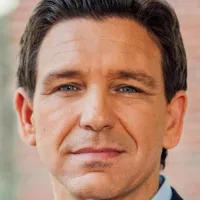
Ron DeSantis is an American politician who has served as...

Marco Rubio is an American politician attorney and diplomat He...
The Affordable Care Act ACA also known as Obamacare is...

The White House located at Pennsylvania Avenue NW in Washington...
Trending
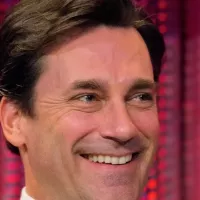
27 minutes ago Jon Hamm Discovers Viral Dancing Meme; Reacts to Meme-Worthy Status at 54.

28 minutes ago Georgia: Missing child found safe after Amber Alert issued in Barrow County.
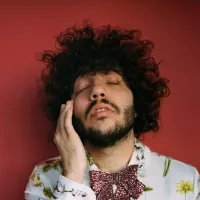
1 hour ago Selena Gomez Defends Benny Blanco Amid Dirty Feet Frenzy and Divorce Comments.

1 hour ago Blackpink Announces New Album 'DEADLINE' and Teases New Era.
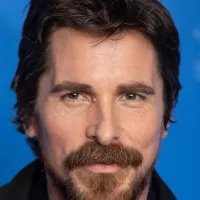
1 hour ago Christian Bale transforms for 'The Bride,' calls character 'old-fashioned,' praises Gyllenhaal's script.
1 hour ago Jaden McDaniels' rise with Timberwolves foreseen by Crawford; joins Leonard's exclusive group.
Popular

Jesse Jackson is an American civil rights activist politician and...

Susan Rice is an American diplomat and public official prominent...

Barack Obama the th U S President - was the...

XXXTentacion born Jahseh Dwayne Ricardo Onfroy was a controversial yet...

Michael Joseph Jackson the King of Pop was a highly...

Kashyap Pramod Patel is an American lawyer who became the...
